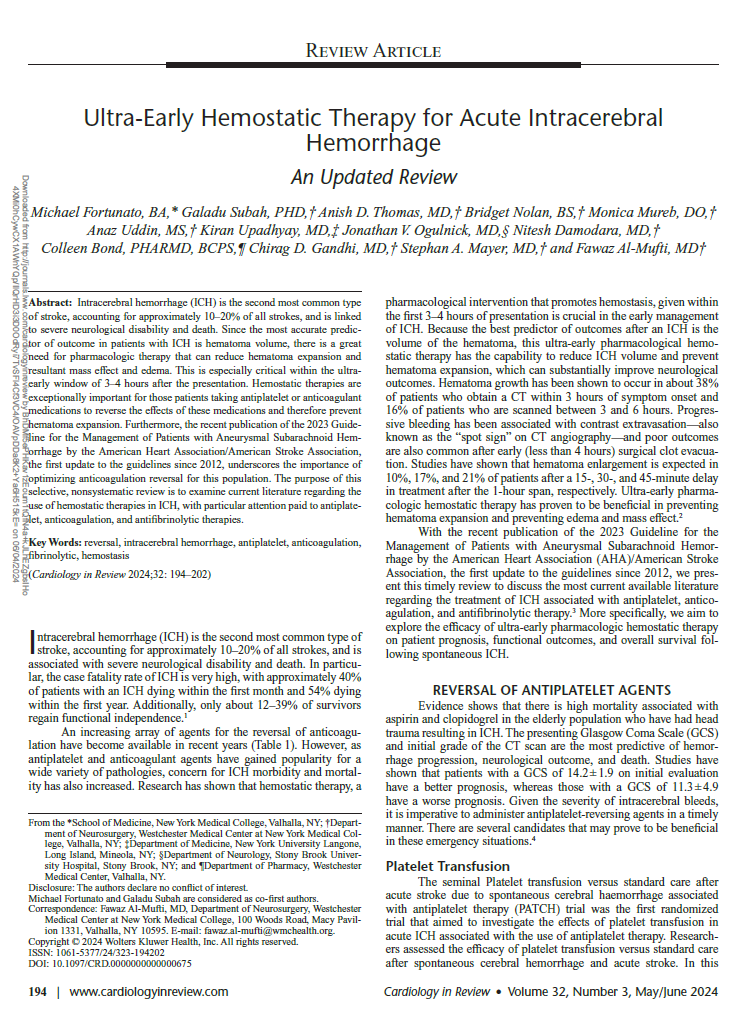Ultra-Early Hemostatic Therapy for Acute Intracerebral Hemorrhage: An Updated Review
May 2024
Abstract
Intracerebral hemorrhage (ICH) is the second most common type of stroke, accounting for approximately 10–20% of all strokes, and is linked to severe neurological disability and death. Since the most accurate predictor of outcome in patients with ICH is hematoma volume, there is a great need for pharmacologic therapy that can reduce hematoma expansion and resultant mass effect and edema. This is especially critical within the ultra-early window of 3–4 hours after the presentation. Hemostatic therapies are exceptionally important for those patients taking antiplatelet or anticoagulant medications to reverse the effects of these medications and therefore prevent hematoma expansion. Furthermore, the recent publication of the 2023 Guideline for the Management of Patients with Aneurysmal Subarachnoid Hemorrhage by the American Heart Association/American Stroke Association, the first update to the guidelines since 2012, underscores the importance of optimizing anticoagulation reversal for this population. The purpose of this selective, nonsystematic review is to examine current literature regarding the use of hemostatic therapies in ICH, with particular attention paid to antiplatelet, anticoagulation, and antifibrinolytic therapies.

